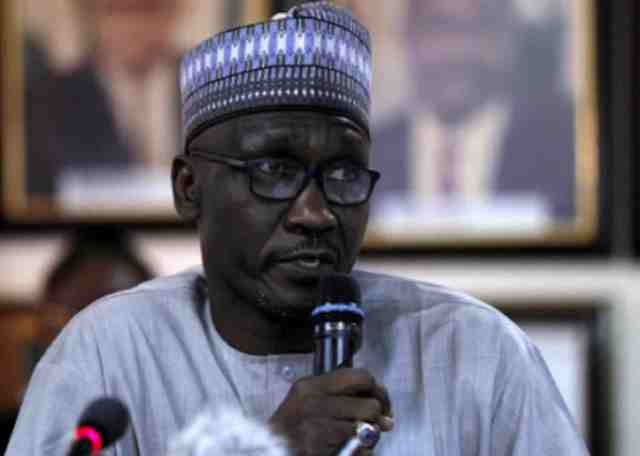ARTICLE AD
Oil marketers under the aegis of Major Oil Marketers Association of Nigeria (MOMAN) and Depot and Petroleum Products Marketers Association of Nigeria (DAPPMAN) have reached agreement with the managements of the Nigerian National Petroleum Corporation (NNPC) and Petroleum Products Pricing Regulatory Agency (PPPRA) to begin importation of fuel and to await the outcome of the meeting of PPPRA board today before adjusting pump price for petrol to the new N125 per litre.
The meeting, which held yesterday in Abuja, was summoned in response to the concerns raised by oil marketers concerning the abrupt reduction in price of premium motor spirit (petrol) from N145 per litre to N125 per litre by the Federal Government on Wednesday without inputs by the oil marketers.
Despite the announcement and directive to sell petrol at N125 per litre with immediate effect, none of the fuel retail outlets of the marketers heeded the directive as investigation by The Nation revealed. Inspection carried out yesterday by The Nation showed that filling stations owned by Mobil, Total, Conoil and MRS among others, didn’t not only have on their price display boards the former price of N145 per litre but insisted they wouldn’t sell below N145 per litre.

Chairman of MOMAN, Mr Tunji Oyebanji, earlier told The Nation that their members cannot sell at the new price except when issues around margins, importation and steps on sustainability of the downstream are discussed and straightened out.
All the concerns of the marketers were discussed at yesterday’s meeting. At the meeting were Group Managing Director of NNPC, Mallam Mele Kolo Kyari, Abdulkadir Saidu of PPPRA; Oyebanji and Winifred Akpani of DAPPMAN.
After the meeting, they resolved that “the industry stakeholders have received communication on the changes to ex-coastal and ex-depot prices and subsequently engaged the Group Managing Director of NNPC with a resolution to await the decision of PPPRA Board meeting holding on 20th March, 2020 on the new PMS template for price modulation.
“The industry stakeholders declared support for the opportunity given to private sector players to resume importation of PMS.”
Meanwhile, Nigeria Employers’ Consultative Association (NECA) has commended the Federal Government on the reduction in the price of Premium Motor Spirit (PMS).
Speaking with The Nation, NECA Director General Dr. Timothy Olawale said it was a welcome development, adding that government should allow the international price of crude to determine the prices of the product in Nigeria, and the template should be flexible to accommodate changes as it might occur.
Olawale said the price of PMS and other petroleum products could have been much lower if the pricing template had been rigorously followed and applied.
He, however, called for caution, noting that Nigeria operates a mono-economy hinged on oil, and urged government to ensure a total eradication of the subsidy regime in whatever form in the country.
The NECA DG said: “Government should address the issue of subsidy and ensure its total eradication. Energy consumption subsidy is any policy by the government that is aimed at reducing the price of energy consumed by citizens relative to what the price would have been in the absence of such policy.
“The regulated price arguably, will reduce the Consumer Price Index (CPI) and make it easy to regulate the level of inflation. Subsidy often leads to increased demand for PMS due to over use and waste arising from reduced price of the product, creating unnecessary shortage of supply.”
Olawale urged government to provide leadership and direction in diversifying the economy, saying the nation cannot hinge its destiny on the price of a commodity in which it has no control on the pricing.
“It is time to deliberately create a roadmap for a rapid diversify of the economy away from oil. We need actions; the government needs to create avenues for more economic activities to happen like diversifying the tax revenue of the government beyond oil,” he said.
The NECA boss cautioned that the shortfall in oil prices should not be a licence to further mortgage the future of the nation with borrowing as the budget is already struggling under the weight of debt servicing.
SOURCE: TheNation

 (2).png) 8 months ago
26
8 months ago
26 
